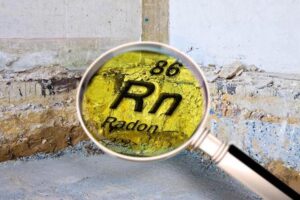
When running a hospital, certain things are essential for everything to run smoothly and effectively. These five things are crucial for the operation of a hospital and play a vital role in ensuring the well-being of patients and staff alike. In this article, we will discuss these five essentials that every hospital must have to provide the best possible care for those who need it. So whether you are already running a hospital or considering doing so, ensure these essentials are at the top of your priority list.
1. High-Quality Medical Equipment
First and foremost, a hospital needs high-quality medical equipment to provide top-notch care for its patients. This includes basic equipment such as stethoscopes and blood pressure monitors, as well as more advanced technology like MRI machines and surgical equipment. Without these tools, doctors and nurses would not be able to properly diagnose and treat their patients.
It is important to note that not all medical equipment is created equal. It is crucial to get your equipment from reputable sources and to regularly maintain and replace them when needed. This ensures accuracy and reliability, which are vital in providing the best care for patients. Additionally, investing in newer and more advanced technology can also improve the overall efficiency of the hospital.
2. Trained and Experienced Staff
Of course, high-quality medical equipment is useless without trained and experienced staff to operate it. Hospitals rely on a variety of healthcare professionals including doctors, nurses, technicians, and support staff. It’s crucial to have a well-trained and skilled team to provide the best care for patients.
Hiring great staff for a hospital can be a tricky process, but there are some tricks to help you find the best candidates. First, make sure to thoroughly screen and interview potential employees to assess their skills and qualifications. This may include conducting background checks and speaking with references. Additionally, consider hiring individuals who have previous experience in a healthcare setting or who have specialized training in a specific field.
It’s also important to create a positive and supportive work environment to attract and retain top talent. This may include offering competitive salaries, providing opportunities for career growth, and promoting a healthy work-life balance. Ultimately, hiring great staff is crucial in maintaining the quality of care in a hospital.
3. Efficient Administrative Systems
Behind the scenes, hospitals also need efficient administrative systems to keep things running smoothly. This includes electronic medical records, scheduling systems, billing and insurance processes, Back Office Healthcare Operations Software, and more. These systems help streamline operations and ensure that patient information is accurately recorded and easily accessible.
To ensure the efficient use of administrative systems, be sure to properly train all staff members on how to use them effectively. This includes providing thorough training sessions, manuals and resources for reference, and ongoing support and assistance as needed. It may also be helpful to designate a specific team or individual to handle any troubleshooting or system updates.
4. A Clean and Sanitary Environment
Maintaining a clean and sanitary environment is vital in a hospital setting to prevent the spread of infections and diseases. This requires proper sanitation protocols, regular cleaning schedules, and adherence to infection control guidelines. Patients trust hospitals to provide a safe and sterile environment for their care, so it’s essential for hospitals to prioritize cleanliness.
One way to tell if a hospital needs extra TLC is by conducting regular inspections and surveys. These can be done by hiring a third-party company or having an internal team assess the cleanliness and sanitation of the entire facility. Additionally, feedback from patients and staff can also provide valuable insights into areas that may need improvement. Be sure to address any issues promptly to maintain a safe and healthy environment for all.
5. Strong Leadership and Management
Last but certainly not least, a hospital needs strong leadership and management to thrive. This includes effective communication, strategic planning, financial management, and decision-making skills. The success of a hospital depends on the direction and guidance provided by its leaders.
Effective management and leadership not only ensure the smooth operation of a hospital, but it also sets a good example for staff. When leaders prioritize communication and collaboration, it encourages open communication among all levels of staff. This promotes a positive and supportive work environment, which can lead to increased job satisfaction and overall performance. Strong leadership also allows for strategic planning and decision-making that can improve the overall quality of care provided by the hospital. When staff see their leaders taking these initiatives, it motivates them to do the same and strive for excellence in their work.
Running a hospital requires much more than just medicine. From top-of-the-line medical equipment to skilled staff and efficient systems, every aspect plays a crucial role in providing high-quality care for patients. It takes a dedicated and well-rounded team to successfully run a hospital and make a positive impact in the healthcare industry. With these things under your belt, you’re sure to run one tight ship. Good luck!
- Run a Hospital? 5 Things You Can’t Go Without - March 25, 2024
- 5 Reasons To Go for Custom-Made Engagement Rings - March 15, 2024
- Here’s What Makes Vineyard Wedding Venues Unique - March 1, 2024






